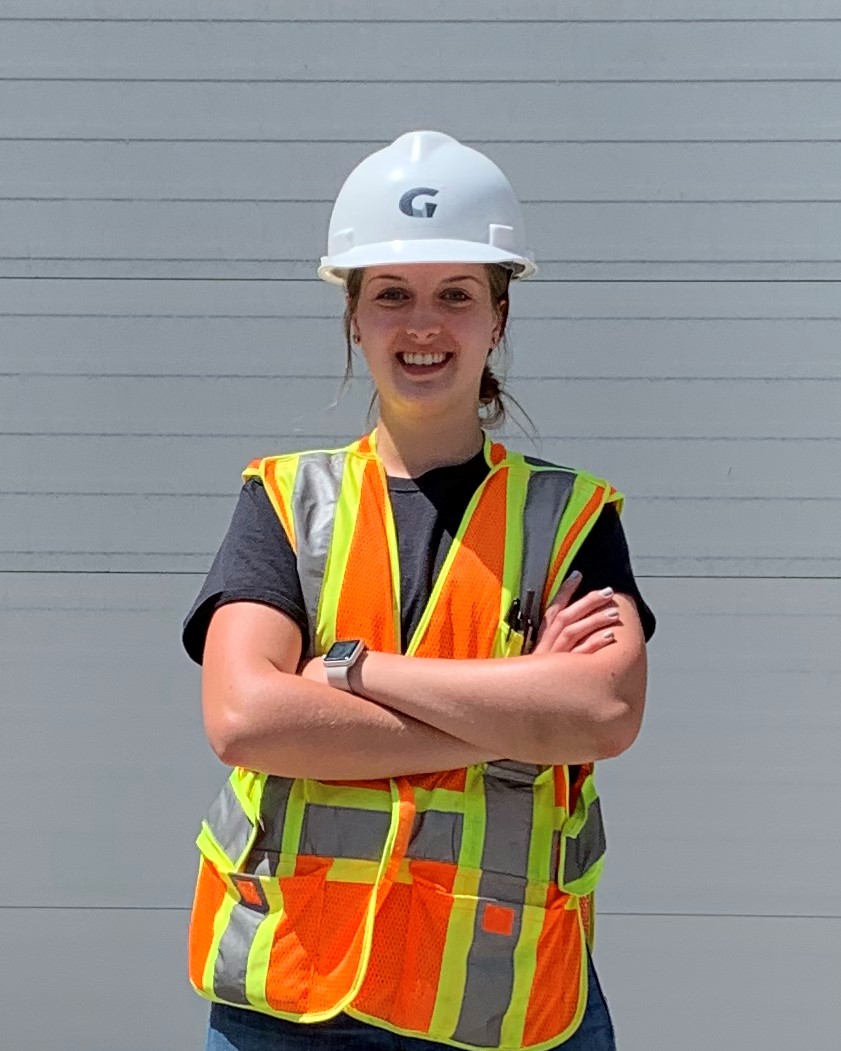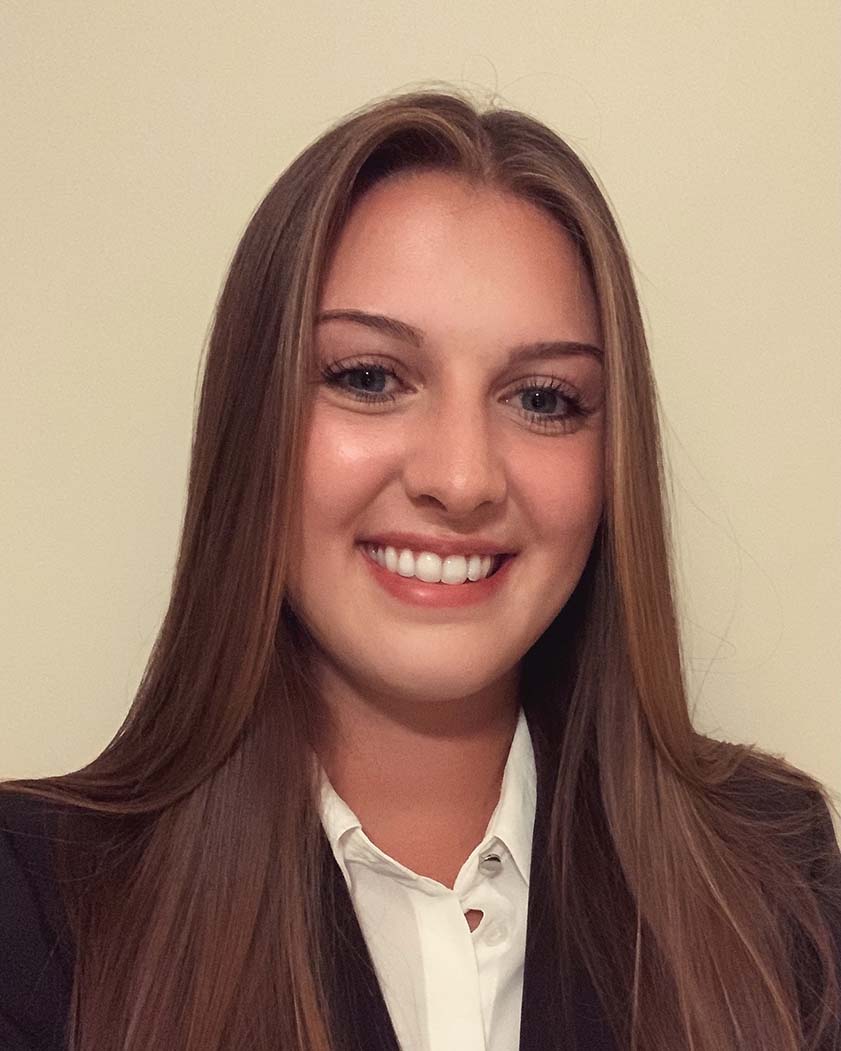Deeana Reynolds’ interest in engineering started in high school. Math and science were very logical and came easily to her, and she enjoyed applying these concepts to solve daily problems. She searched to be challenged and was curious about how things worked and ways that problems could be solved. Engineering always seemed like the perfect fit.
Hoping to eventually enter the environmental industry, she initially entered her general first year at Queen’s Engineering with the intention to specialize in chemical engineering. After taking APSC 151 (Engineering Geology), her direction on how she would enter the industry changed. Deeana knew she wanted to expand into the environmental industry through growing her knowledge for geological engineering.
Deeana shares more about her engineering journey this Q&A.
What does a Geotechnical/Environmental Engineering intern at Grounded Engineering do?
A Geotechnical/Environmental Engineering intern supports the Environmental Engineer to manage and complete several different projects. In my early days on the geotechnical and environmental team, I supervised drilling investigations (soil and rock coring), completed borehole logs, test pit investigations, environmental sampling, well development, groundwater levels, surveying, phase one site inspections and much more. I was also trained on writing environmental site assessment reports and hydrogeological reviews for development projects mainly around the Greater Toronto Area. During the last few months of my internship, I led a development project which focused on geotechnical and excess soil management services.
Based on your internship experience, what did you learn about engineering or the workplace that you didn't know before?
After working for 16 months, one of the main things I learned is that the engineering behind every project is very collaborative. Before my professional experience, I assumed that one engineer was assigned to a project, and all decisions and management were left to them. Like most organizations, engineering companies have employees from varying backgrounds, education levels, and experience who collaborate and learn from one another when they encounter unfamiliar projects.
The senior engineers at Grounded Engineering were always willing to support, teach and provide advice. Working as part of a tight-knit team taught me that you're never alone in anything you do.

What skills would you say are most important for engineers? Did any of the necessary skills to be successful in your role surprise you?
When I first started at Grounded Engineering, I thought the most important skills in an engineering workplace would be technical skills such as problem-solving, mathematics, critical thinking, etc. Throughout my internship, I was surprised to learn that the essential skills for an engineer are communication, ethical reasoning, sound judgement and teamwork. Communication is crucial, whether you’re in the office with colleagues, on-site with subcontractors, or speaking with clients. Everyone involved should always be on the same page at every stage, and frequent and effective communication plays a large part.
Was your job description and projects you worked on directly connected to your discipline, or were they interdisciplinary? Are there any conclusions you can draw from these findings?
When I started at Grounded, I had the option to choose the company's division that I preferred to be trained in; the geotechnical and environmental division or the geo-structural division. I joined the geotechnical and environmental team, which typically deals with the first stages of consulting for a development project. Grounded is a geological and civil engineering company with minimal interdisciplinary components. However, there was always something new to learn, and departments collaborate on different elements of the project.
How did your Queen's Engineering education and related experiences help you develop these skills and prepare you to be successful in the workforce? Were there any faculty members or classes that were particularly helpful?
Working a similar summer position after first and second year prepared me for the field aspect. Having some background knowledge, especially regarding environmental aspects, was extremely helpful and provided a strong foundation for the work I'd be doing. Queen's helped me prepare for my internship, because similar to school, the workplace has deadlines that need to be met to get reports out to clients. The time management skills learnt through courses transferred over into my internship. APSC 100 and APSC 200 were great courses that simulated teamwork in a workplace environment, which helped prepare me the most for my internship position. My program has helped me develop communication and collaboration skills while seeking out supervision or support when necessary.
What would you say to a student who is considering a QUIP internship, based on your experience?
Don't let anything hold you back. Choosing to do an internship was by far the best decision I have made during my undergraduate career. Of course, I had doubts when I was first considering it, such as worrying about finding a place to live when I returned, what would happen if I didn't get a position, not being able to graduate with my class or my friends, etc. There is absolutely no harm in joining the QUIP program; even if you go to a few interviews and decide an internship is not for you, then at least you were able to gain interview and job search experience. I found that there is no downside to joining the QUIP program. You won't be alone; there will be many other engineering students in the same position.
Now that you've completed your internship, what advice would you offer your younger self or other young women aspiring to be engineers?
After completing my internship, I would love to tell my younger self and other young women aspiring to be engineers that if you’re doing what you’re passionate about, don’t give up on yourself even when the odds are against you. Before starting at Queen’s, I struggled through the stigma of being a female engineer in a male-dominated field, trying to smile through the comments and remarks of people trying to deter me from pursuing my passion in this field. I know that a lot of girls my age have been through very similar situations, which is why I want them to know that although those comments are still being made, it gets better.
I was very fortunate to be hired into a company that prioritizes the well-being of its employees above all else. Grounded Engineering is aware of the hardships of being a young engineer starting out in this very competitive field. I was also very fortunate to be hired into a team with so many strong, inspiring and successful female role models. I have received an overwhelming amount of support throughout my entire work term and I am so grateful for these women who have shared their stories with me, taught me so much, helped grow my confidence and inspired me to stick with what I am passionate about.
What are your career plans after graduation?
My internship experience has confirmed my interest and passion in pursuing a career in the environmental field. After graduation, I plan to return to Grounded Engineering as a full-time EIT/project manager on the geotechnical and environmental team and work towards my P.Eng.
